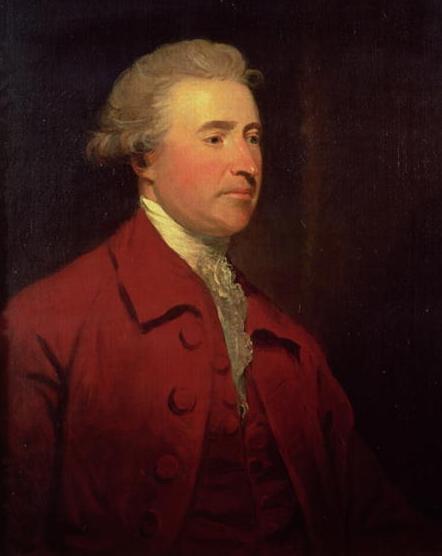Edmund Burke frasi celebri
“Tutti gli uomini che si rovinano, lo fanno dalla parte delle loro inclinazioni naturali.”
da Letters On a Regicide Peace, 1796
da Reflection on the Revolution in France, 1790
Riflessioni sulla Rivoluzione in Francia
Frasi sulle leggi di Edmund Burke
da Reflection on the Revolution in France, 1790
da Reflection on the Revolution in France, 1790
Riflessioni sulla Rivoluzione in Francia
Edmund Burke Frasi e Citazioni
1826, vol. III, p. 54 o 1963, p. 91; citato in Losurdo 2005, p. 130
da The Second Speech on Conciliation with America, 1775
Second Speech on Conciliation with America
“È lenta la marcia della mente umana.”
da The Second Speech on Conciliation with America, 1775
Second Speech on Conciliation with America
Edmund Burke: Frasi in inglese
“To tax and to please, no more than to love and to be wise, is not given to men.”
First Speech on the Conciliation with America (1774)
Reflections on the Revolution in France (1790)
“Laws, like houses, lean on one another.”
From the Tracts Relative to the Laws Against Popery in Ireland (c. 1766), not published during Burke's lifetime.
1760s
“To speak of atrocious crime in mild language is treason to virtue.”
Attributed in Captain William Kidd: And Others of the Pirates Or Buccaneers who Ravaged the Seas, the Islands, and the Continents of America Two Hundred Years Ago (1876) by John Stevens Cabot Abbott, p. 179
Undated
“Better to be despised for too anxious apprehensions, than ruined by too confident a security.”
Reflections on the Revolution in France (1790)
“Applause is the spur of noble minds, the end and aim of weak ones.”
Not found in Burke's writings. It was almost certainly first published in Charles Caleb Colton's Lacon (1820), vol. 1, no. 324
Misattributed
“Beauty is the promise of happiness.”
Actually by Stendhal: "La beauté n'est que la promesse du bonheur" (Beauty is no more than the promise of happiness), in De L'Amour (1822), chapter 17
Misattributed
“Sin has many tools, but a lie is the handle which fits them all.”
Not Burke but Oliver Wendell Holmes in The Autocrat of the Breakfast-Table (1858).
Misattributed
Speech on the Independence of Parliament (1780)
Second Speech on Conciliation with America (1775)
“Learning will be cast into the mire and trodden down under the hoofs of a swinish multitude.”
Volume iii, p. 335
Reflections on the Revolution in France (1790)
Present Age, p. 49
Table talk
France, (Still in a state of Anarchy), p. 27
Table talk
Origine: Letters On a Regicide Peace (1796), p. 19
“They who bow to the enemy abroad will not be of power to subdue the conspirator at home.”
Origine: Letters On a Regicide Peace (1796), p. 18
Origine: An Appeal from the New to the Old Whigs (1791), p. 476
Origine: An Appeal from the New to the Old Whigs (1791), p. 471
Origine: An Appeal from the New to the Old Whigs (1791), p. 441
Origine: An Appeal from the New to the Old Whigs (1791), p. 436
Origine: An Appeal from the New to the Old Whigs (1791), p. 409
Volume iii, p. 453
Reflections on the Revolution in France (1790)
Letter to the Sheriffs of Bristol (1777)
Letter to the Sheriffs of Bristol (1777)
Letter to the Sheriffs of Bristol (1777)
Letter to the Sheriffs of Bristol (1777)
Letter to the Sheriffs of Bristol (1777)
“The use of force alone is but temporary.”
It may subdue for a moment; but it does not remove the necessity of subduing again: and a nation is not governed, which is perpetually to be conquered.
Second Speech on Conciliation with America (1775)
“A great profusion of things, which are splendid or valuable in themselves, is magnificent.”
The starry heaven, though it occurs so very frequently to our view, never fails to excite an idea of grandeur. This cannot be owing to the stars themselves, separately considered. The number is certainly the cause. The apparent disorder augments the grandeur, for the appearance of care is highly contrary to our idea of magnificence. Besides, the stars lie in such apparent confusion, as makes it impossible on ordinary occasions to reckon them. This gives them the advantage of a sort of infinity.
Part II Section XIII
A Philosophical Enquiry into the Origin of Our Ideas of the Sublime and Beautiful (1757)
